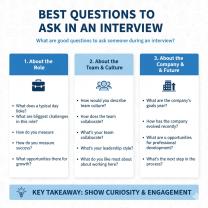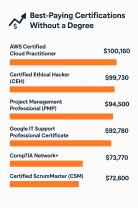Is it hard to find a job as a historian?
Finding a job as a historian can be challenging, but it largely depends on several factors, including your specialization, qualifications, networking efforts, and the demand for historians in your area or field of interest. Here are some considerations:
Challenges:
Limited Job Market: The job market for historians is relatively small compared to some other professions. Positions in academia, museums, archives, and government agencies can be competitive.
Educational Requirements: Many historian positions require advanced degrees, such as a master's or Ph.D., which can be time-consuming and costly to obtain.
Experience and Specialization: Employers often seek historians with specialized knowledge or expertise in a particular historical period, region, or theme. Specialization can limit job opportunities.
Adjunct Teaching: In academia, many historian positions are part-time or adjunct roles, which may not offer job security or benefits.
Geographic Mobility: Historians may need to be open to relocating to areas with more job opportunities, especially if they have a specific career path in mind.
Opportunities:
Diverse Career Paths: Historians can find employment in a variety of sectors, including academia, research institutions, museums, archives, government agencies, libraries, publishing, consulting, and the private sector.
Research and Writing: Historians often have strong research and writing skills, making them well-suited for roles in research, analysis, content creation, and publishing.
Teaching: Many historians teach at the high school or college level, sharing their knowledge and passion for history with students.
Archival and Curatorial Work: Historians can work in archives, libraries, and museums, preserving and curating historical materials and exhibits.
Government and Policy: Historians may find opportunities in government agencies, helping shape public policy, conducting historical research, and providing expertise.
Heritage and Cultural Preservation: Historians can work in roles related to heritage preservation, cultural resource management, and historic preservation.
Strategies to Improve Job Prospects:
Networking: Building a professional network within the historical community, attending conferences, and connecting with potential employers can help you learn about job openings.
Internships and Volunteering: Gaining practical experience through internships or volunteer work in relevant organizations can enhance your resume and network.
Publishing and Presentations: Sharing your research through publications and presentations can showcase your expertise and make you more attractive to employers.
Broadening Skills: Developing complementary skills, such as digital humanities, data analysis, or archival management, can make you more versatile and marketable.
Consider Adjunct Positions: While adjunct positions may not be ideal for long-term job security, they can provide valuable teaching experience and connections in academia.
Government and Nonprofit Organizations: Explore opportunities with government agencies, nonprofit organizations, and historical societies that may offer historical research and policy roles.
Geographic Flexibility: Be willing to consider job opportunities in different geographic areas to increase your chances of finding employment.
Ultimately, finding a job as a historian can be challenging, but with determination, the right qualifications, networking, and adaptability, historians can build fulfilling careers in various sectors that value their expertise in understanding and interpreting the past.
Pursuing a Career as a Historian: Job Market Insights
The job market for historians is competitive, but there are a variety of opportunities available. Historians can work in academia, government, museums, archives, and other settings.
The academic job market for historians is the most competitive. There are more PhD graduates than tenure-track positions available. However, there are also a number of non-tenure-track positions available, such as teaching assistant, instructor, and lecturer positions.
Historians can also find employment in government agencies, such as the National Archives and Records Administration, the Library of Congress, and the Smithsonian Institution. Government agencies hire historians to conduct research, write reports, and develop educational programs.
Museums and archives also hire historians to curate exhibits, conduct research, and develop educational programs.
Other opportunities for historians include working as freelance writers, editors, and consultants. Historians can also work in the private sector, such as for historical societies, family history organizations, and genealogy companies.
Finding Employment as a Historian: Challenges and Opportunities
One of the biggest challenges for historians is finding a job that matches their skills and interests. The job market for historians is competitive, and there are often many qualified candidates for each position.
Another challenge for historians is that the pay is not always high. Entry-level positions in academia typically pay between $30,000 and $40,000 per year. More experienced historians may earn more, but the pay is still typically lower than in other professions.
Despite the challenges, there are also a number of opportunities for historians. Historians can work in a variety of settings, and they can use their skills to make a difference in the world.
The Historian Job Search: Navigating the Employment Landscape
When searching for a job as a historian, it is important to network with other historians and to attend professional conferences. It is also important to tailor your resume and cover letter to each job you apply for.
Here are some additional tips for navigating the historian job search:
- Start your job search early. The historian job market is competitive, so it is important to start your job search early. This will give you time to research different job opportunities, network with other historians, and prepare your application materials.
- Target your job search. Make a list of the types of jobs you are interested in and the locations where you are willing to move. This will help you to focus your job search and to increase your chances of finding a job.
- Network with other historians. Attend professional conferences and join professional organizations. This is a great way to meet other historians and to learn about job opportunities.
- Tailor your resume and cover letter. When applying for jobs, be sure to tailor your resume and cover letter to each job you apply for. Highlight the skills and experience that are most relevant to the job you are applying for.
- Be persistent. The historian job search can be challenging, but it is important to be persistent. Don't give up if you don't get the first job you apply for. Keep applying for jobs and networking with other historians, and you will eventually find a job.












